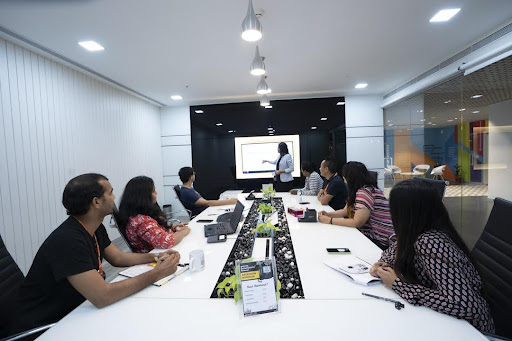

In today’s rapidly evolving business landscape, understanding and harnessing organizational knowledge is crucial to maintaining a competitive edge. Companies must be well-versed in various operational aspects to thrive, from the intricate dynamics of tacit and explicit knowledge to the strategic planning required for successful mergers and acquisitions. Below, we delve into these critical topics and offer insights into managing knowledge effectively during transition periods. Keep reading to gain a comprehensive view and practical tips for your business’s growth and sustainability.


Organizational knowledge is a valuable asset that can dictate a company’s success or failure. It comes in two main forms: tacit and explicit. Tacit knowledge is inherently personal, built from hands-on experiences and nuanced insights that are challenging to codify. This knowledge is often communicated through direct interaction and social networks, making it an integral part of a company’s intellectual capital.
Explicit knowledge, on the other hand, is more straightforward to capture and share. It comprises documented information and can be easily communicated across the organization through manuals, databases, and other formal methods. Companies that manage to leverage both types efficiently are often more innovative and responsive to market changes.
However, the challenge lies in converting tacit knowledge into explicit knowledge—a process called codification. This translates intuitive expertise into structured forms others can understand, multiplying the organization’s benefits. Effective knowledge management strategies are crucial for this conversion process.
Integration of the two types of organizational knowledge is a delicate balance but when done successfully, it can lead to significant growth in organizational intelligence and competitive advantage. Companies must continually adapt and find new methods to capture and disseminate these invaluable assets.
A merger or acquisition is one of the most challenging and transformative events a company can undergo. Mergers and acquisitions (M&A) require meticulous planning, strategic foresight, and a clear understanding of the desired outcomes. They often entail complex legal and financial processes, cultural realignments, and the integration of disparate corporate entities into a cohesive whole.
Due diligence is critical in this process, as it uncovers potential risks and rewards associated with the deal. Companies must analyze an exhaustive amount of information—from financial statements and contracts to employee records and intellectual property. It’s a multidisciplinary effort that involves experts from different sectors collaborating to compile a comprehensive overview of the targeted company.
One of the many challenges during an M&A is the retention and transfer of organizational knowledge. The fear of knowledge loss or contamination can be among the top concerns for both entities participating in the transaction. A well-designed knowledge management plan can help address these fears, ensuring valuable information is preserved and shared effectively.
Knowing how to navigate mergers and acquisitions properly is essential, as they can drastically alter an organization’s knowledge base. Companies must strive for a methodical and intentional approach to maximize the benefits of a combined knowledge pool post-merger or acquisition.
For merging companies, the seamless knowledge transfer between the amalgamating entities is a cornerstone of a prosperous union. It entails the exchange of strategic information and the blend of corporate cultures and best practices. Commencing this process with an audit of both companies’ knowledge assets establishes a baseline for the knowledge transfer process.
Creating mixed teams comprising members from both companies can facilitate the cross-pollination of ideas and practices. It is essential to promote open communication within these teams and foster an environment where employees from both sides feel comfortable sharing their expertise and learning.
Designating knowledge champions or leaders in both organizations responsible for guiding the knowledge transfer can increase efficiency and ensure that valuable information doesn’t fall through the cracks. These individuals can serve as go-to sources for clarifications, support, and integration of best practices.
Mentoring and training programs are vital mechanisms that not only transfer knowledge but also help to unify teams. Spending time on structured knowledge-sharing sessions can expedite integration, helping new combined teams hit the ground running.
Altogether, the agility and success of modern businesses hinge on the effective management and transfer of organizational knowledge, especially during pivotal events such as mergers and acquisitions. Companies can safeguard their corporate intelligence and augment their market position by appreciating the nuances between tacit and explicit knowledge, employing strategic planning in business transactions, and fostering environments conducive to knowledge sharing.
When searching for a trustworthy pest control business, reading reviews is usually the way to…
Lip flip, a cosmetic procedure to give your upper lip a fuller look. In contrast to…
Some fashions are always changing, allowing people to express themselves and their imaginations through clothing.…
A devastating 7.7 magnitude earthquake struck Myanmar and Thailand on Friday, leveling buildings and causing…
Danny Kilcannon VarsityGaming, celebrated educator, influencer, and professional gamer Danny Kilcannon is best known by…
DesireMovies is a web platform that provides a great collection of Bollywood, Hollywood, and local…